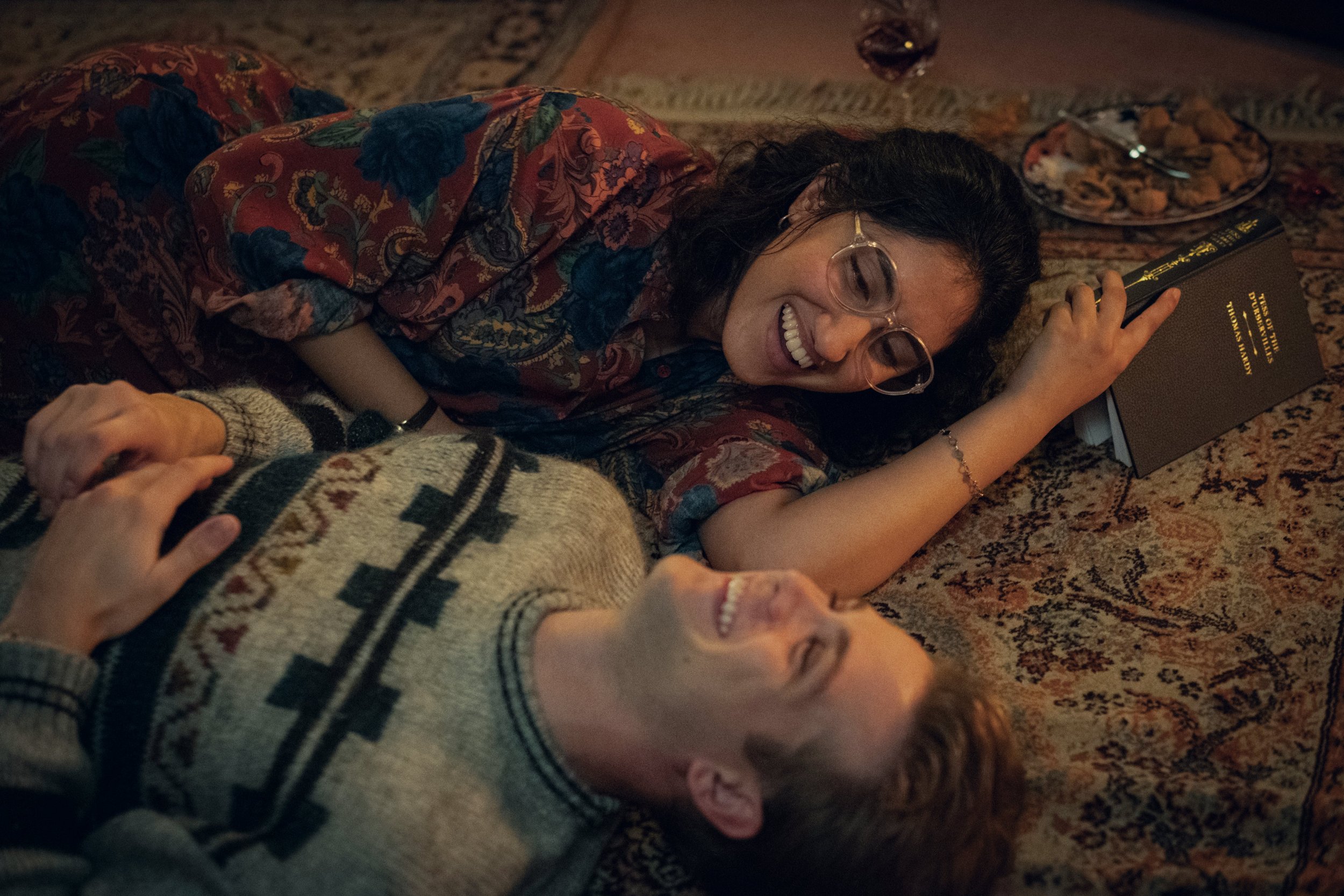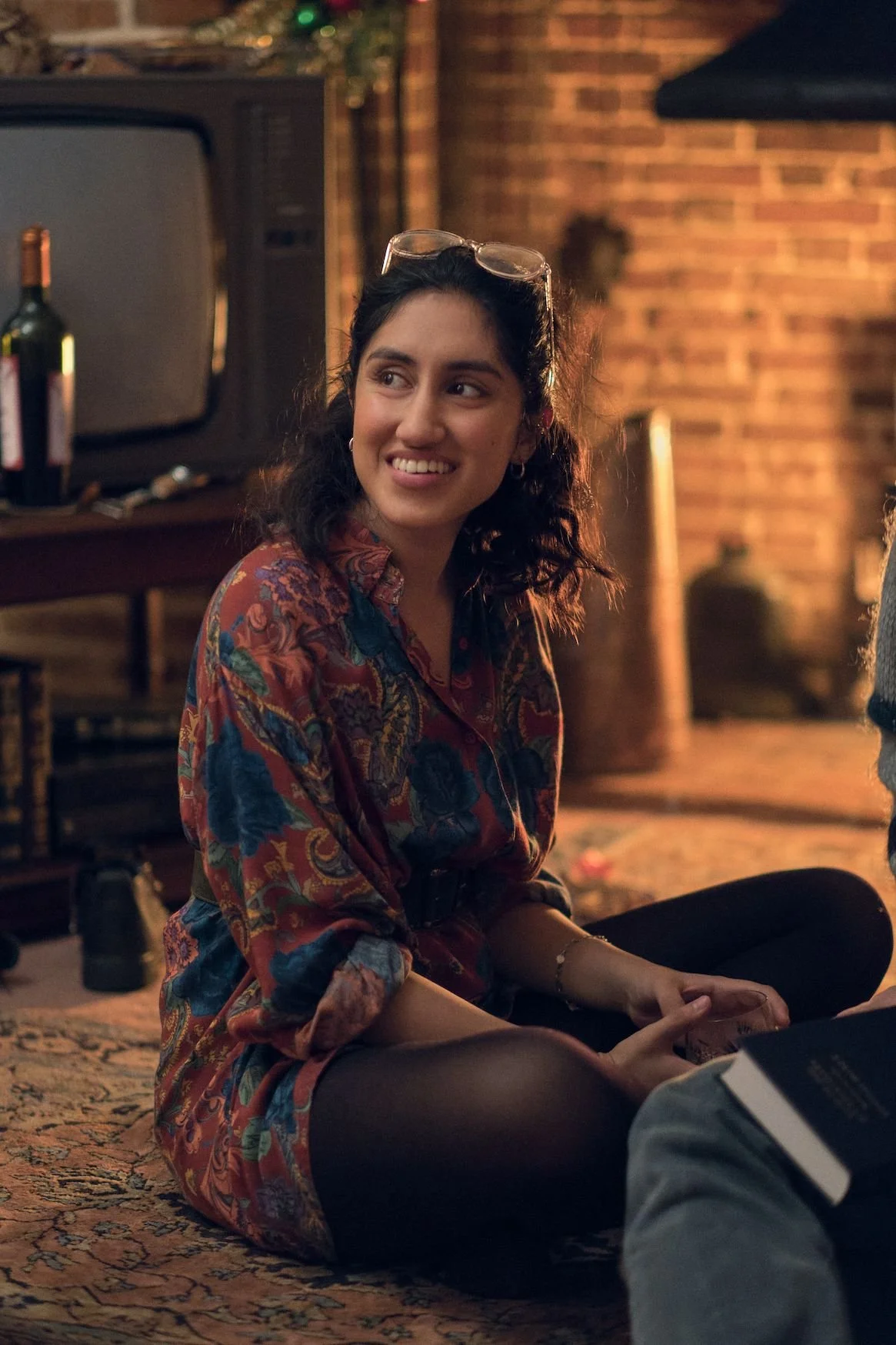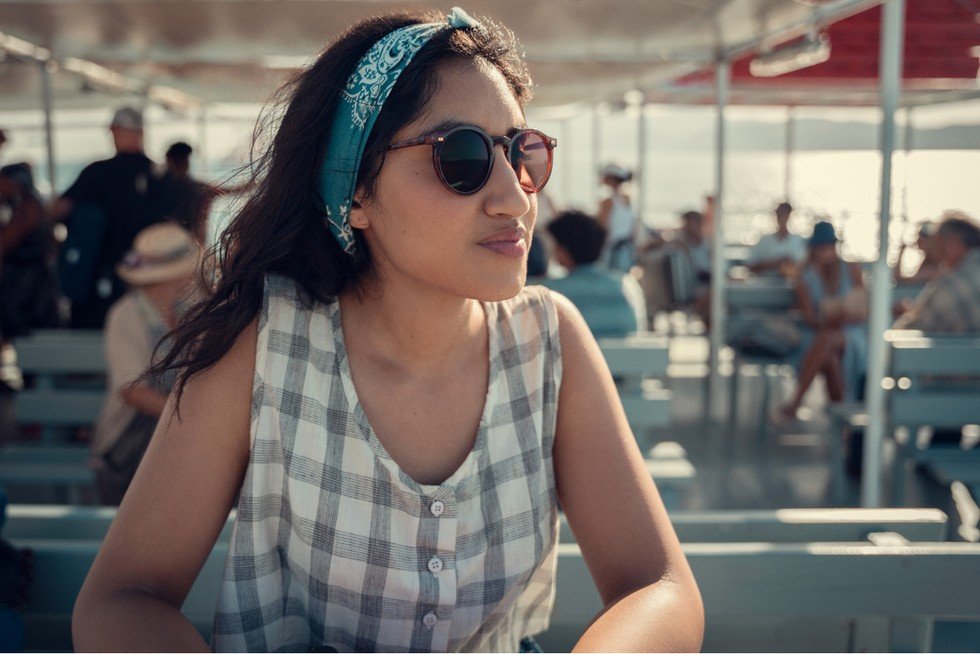On Being Brown and Beautiful: Ambika Mod in One Day
By Opinion Editor Baneen Talpur
Like the majority of people with a Netflix account, I have recently binge watched the romantic drama, because let’s be real this is in no way a comedy, One Day. Starring Leo Woodall and Ambika Mod, this story based on the novel by David Nicholls, revolves around Dexter and Emma, two students who meet each other at the last night of university and the development of their relationship over the next twenty years. Comparable to the likes of normal people, this is a classic modern situationship, right person wrong time situation, with both people loving each other from the start but not being able to admit it until it’s almost too late.
From One Day created by Nicole Taylor
Their relationship is tumultuous at the start with so many mixed signals being thrown left right and centre that you may as well be on a roundabout. I remember watching the first few episodes and thinking ‘God I would not be able to tolerate half of the things that they say to each other, how are people thinking that this is what love looks like?!’ But I stuck through, longing to find out if they actually ever get together and boy did the season not disappoint. I found myself rooting for them more than any couple that I have in a long time. Seeing the characters and their relationship ended up being a real treat, reminding the viewer of the complexity of life, that things are genuinely not that simple and things do not change until people are willing to accept that change. While the show was not necessarily groundbreaking, after all it is a romance with observations on the complexity of love, the show felt fresh and this largely goes to the actress who played the lead Emma Morley, the outstanding Ambika Mod.
Now I am not slating Leo Woodall’s performance in any way here, his acting was phenomenal and captured the hearts of millions all over the world. One day was Netflix’s most watched show in February.
The uniqueness of Ambika Mod lies in the fact that this is one of the rare times that we see a brown girl as the lead in a romantic film in a Hollywood setting. Yes, there have been films in the past such as Bend it Like Beckham who have had brown female leads before, but more often than not, those shows overamplify the fact that the main character is brown. They go overboard with the cultural aspect of things, often putting brown girls in a very restrictive box. Brown women are rarely seen as just themselves with their own views, observations and choice. Their colour has to be reflected in the plot somehow, the character has to be impacted by it. Ambika’s character, Emma is brown but her character has nothing much to do with that. At the start, Dexter does ask Emma whether not getting with him was for religious reasons but other than that it does not get mentioned. Dexter does not fetishise her either, he yearns for her because he genuinely is in love with her whole self. This was the first time in ages where I have seen a brown girl be viewed as desirable in the show. Almost never are brown girls viewed as desirable in mainstream media with rampant colourism existing in South Asian countries too, being desirable lying in having a lighter skin colour. Emma was just Emma and she could be or do anything that she wanted.
My whole life, I have felt less beautiful, less desirable by my white peers despite having good features. It’s not that I don’t see myself as beautiful at all, I do, but the feeling that my beauty will never be enough at times, is very real.
Ambika Mod has reflected on this herself in interviews, she initially declined the role. She said it herself she wasn’t used to seeing ‘women who look like me’ take on romantic leads. In an Interview with Elle Magazine she elaborated further ‘I think part of the reason why I just didn’t see myself playing that part was because insidiously and implicitly that’s a message that I’ve been fed my entire life - the people who look like me aren’t romantic leads, that people who look like me aren’t the people who the male romantic lead will fall in love with’ and I resonated with that so much. My whole life, I have felt less beautiful, less desirable by my white peers despite having good features. It’s not that I don’t see myself as beautiful at all, I do, but the feeling that my beauty will never be enough at times, is very real.
Her character is funny, bright, talented. She is smart and witty and yet she still doesn’t have so much figured out for a large amount of the show. Brown women are normally expected to have everything together, their degree, job, husband. On TV the brown girl is the nerd, with her head in the books and nowhere else. Seeing that a woman can take her time, can make wrong choices or grow over a longer period of time felt reassuring.
Seeing women like these on TV develops an understanding of how women can be both similar and different, united by womanhood.
There is some criticism of the show in that there is very little to no mention of her brown identity and maybe that could have slightly been in the show, but remembering that the show is based on a book where the character was not originally written as brown would not really allow for that.
Slowly but surely, the representation of brown women on screen is changing with characters such as Emma Morley and Devi Vishwakumar being shown on screen. Seeing women like these on TV develops an understanding of how women can be both similar and different, united by womanhood. Under Ambika’s pictures there are regularly comments about how beautiful she is and I think part of that comes from the fact that her beauty is being shown in a positive new light in the first place. Seeing Emma reminded me of the importance of seeing myself on screen, how much impact it can have, no there is nothing wrong with me for wanting the things that she has and finally that people do actually see women like myself and think that they are talented and worthy.




